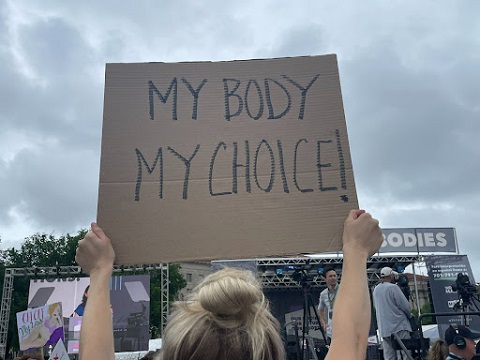Where do you usually vend the Denver Voice?
Joe Osckel: On the 16th Street Mall.
John Alexander: In two places, my day split up into two — the early a.m. and then the afternoon until about 6:00 or 7:00 at night. I start out the day at Starbucks over in Stapleton. Business usually drops about noon there. Then I go over to Auraria campus. I’ve been there for nine years this past September. Classes and things pick up about noon, and they have a great night school.
TJ Jackson: On the 16th Street Mall.
Jerry Rosen: I usually work on Pearl Street and 15th Street or Broadway. Those two corners, usually.
Nathanial Trotter: I’ve got this new place I’ve been going for about three or four months — on Blake Street. 16th and Blake. It’s the best street I’ve ever had. […] I really like it, I think it gives a whole new meaning to “Blake Street Bombers.” They’re doing pretty good.
Why in that location?
Joe Osckel: Because I’ve been down there for 16 years; I know a lot of people.
John Alexander: That particular time in the morning I don’t think there’s any place that matches that Starbucks. Because in the morning you have serious, serious coffee drinkers. […] Over at the college there’s students […] they don’t have to start until 12:00 or 1:00 and that’s when business pick up over there for the students.
TJ Jackson: Because I have a lot of my clientele there now, people know me. That’s where I’m known to be. I used to go all around […] but I finally decided to come onto the Mall after two years doing the VOICE.
Jerry Rosen: I was working another corner, but it’s been kind of slow. So I move back and forth. I’ve been doing pretty good.
When do you usually vend the VOICE?
Joe Osckel: From 10:00 or 11:00 in the morning until 3:00 or 4:00.
TJ Jackson: From 11:00 to 2:00.
Jerry Rosen: I usually work in the late morning to about 3:00 in the afternoon. I usually work between five and six days a week. Nathanial Trotter: I don’t go out all week. I might go out three or four days a week.
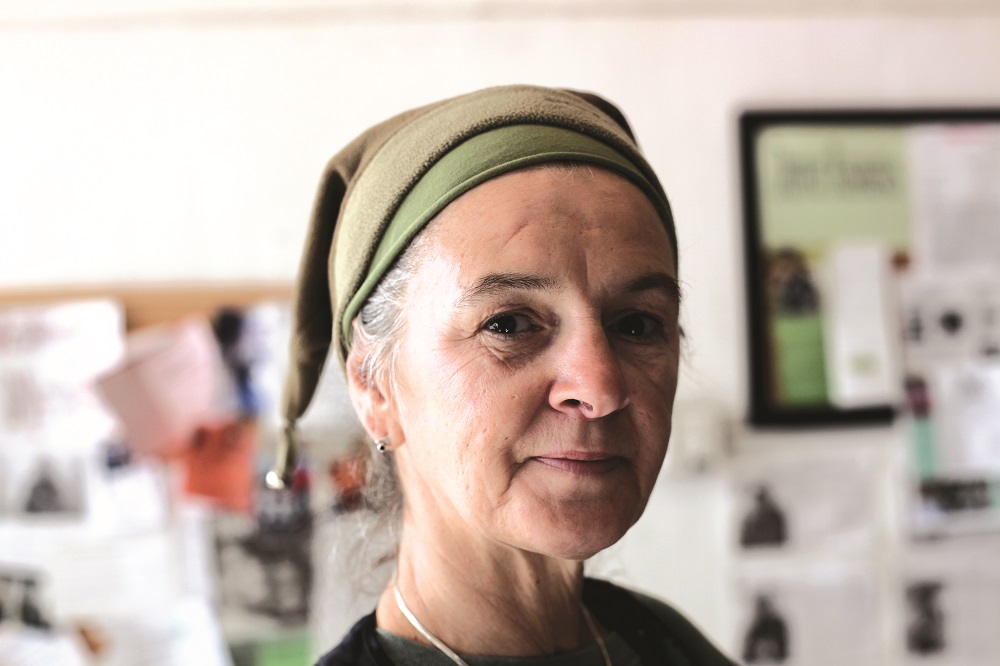
Why do you choose those times?
TJ Jackson: That’s always been my schedule. I just like those hours. It’s during the lunch rush, and that’s when everybody’s out.
Joe Osckel: Because I catch them all during lunch and then going home. So I get all the office workers, then I get regular Joes too.
Jerry Rosen: Because that’s when most of the people are out. There usually aren’t that many people out in the morning.
When do you buy VOICE papers?
John Alexander: I buy about two or three times a week. I buy papers after the weekend because you generally are out of papers, or down very low, from good weekend business. Then I buy in the middle of the week to keep the momentum going. On Friday you buy papers again to make sure you have papers for Friday, Saturday and Sunday.
TJ Jackson: I always try to come in between 9:00 and 10:00 and get my papers.
Jerry Rosen: I usually come in once or twice a week. I usually come in on Thursday or Friday.
How do you encourage people to buy the VOICE? Do you have a technique?
John Alexander: It’s really on the person vending the paper to cultivate and build his business with customers or clientele. I call them family. When I first started at Auraria campus, there [were] thousands and thousands of students there every day, and I could probably find a small handful that spoke to me. But, like a snowball, it started building one person to another person. Now, you can hardly hold a conversation without someone coming over, saying hello, shaking my hand, or waving or something.
TJ Jackson: I get people interested in what I’m doing and what I’ve got. They’ll be curious, they’ll come up and ask “What’re you doing? What’ve you got?” I get a lot of comments, like “keep doing what you’re doing, man.”
Nathanial Trotter: People love a personality. They’ll say they love my smile, they like the way I talk. I think people like to talk to people and communicate. And I’m not real loud, but I make sure people hear me. You’ve got to let them hear you.
How many papers do you usually buy in the office?
TJ Jackson: I come and get 20 every day, [maybe] 10 or 15.
Jerry Rosen: I usually buy roughly around 25 to 50 papers.
Do you have any regular customers?
John Alexander: It’s very personal. Everyone I deal with, I have the understanding with myself they are not my customers, my clients […] they are my family. I have a big family at the Auraria campus, I have a big family at Starbucks.
TJ Jackson: Yeah, I got a whole bunch of them. I’ve got my clientele. They know me, they go by and say “Hey, TJ.”
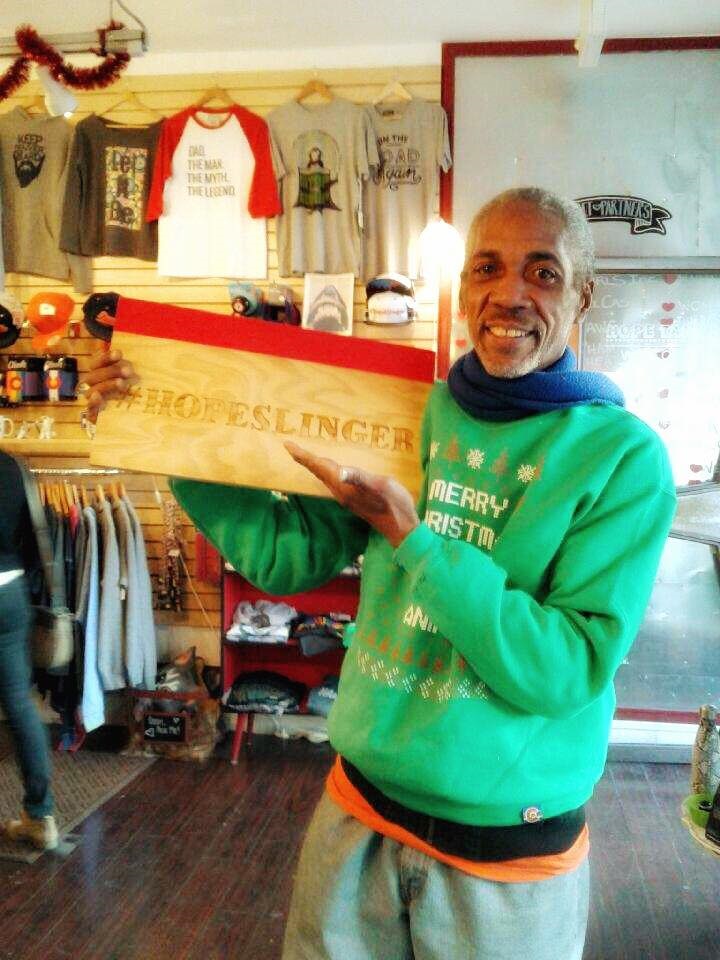
LETTERS FROM OUR READERS
What distinguishes a Denver VOICE vendor? Some are homeless, others not, but that is not germane. VOICE vendors are entrepreneurs: they understand the importance of location, buy their papers for $.50 and ask for a $2 donation, and know their customers. Vendors establish credentials (badges) and complete a training session. Vendors efficiently run their own enterprises.
The first vendor I met, Jerry, would come to the Boulder Farmer’s Market each Saturday. It is an early rise to catch the bus and arrive when the market opens. He always respected the market boundaries and I was intrigued by his approach and banter. I finally took the time to discover what and why he was selling. Looking back on that first encounter, I recall his self-reliance and the respect he gave me.
Now I live smack downtown so I encounter VOICE vendors and others asking for money every day. As I write, I know the vendors make me feel I am in a neighborhood. We exchange “hellos” and converse. The vendor I know the best is Rae, who works his morning shift at 16th and Larimer. At first I was just impressed by his smile and wave to people getting on and off the 16th Street shuttle. Rae has that wonderful ability to project cheer and look directly at people. He is inviting, but does not push into pedestrians’ space. Now I get amused at people who come abreast of Rae and stare intently at the specks on their shoes. His come back? “Thanks, have a good day.”
Rae and I have talked about his writing and he has had one long, narrative poem published in the VOICE. When I’ve asked about his story, he has shown reluctance and gave me a valuable insight: “I don’t want to write about the sad and depressing things in my life. Everyone on the street has that kind of story. I want to get to the point where I can write about how I succeeded. I don’t want anyone to see me as a loser.”
Any vendor will take time to thank you and chat if you spend the time. The funniest and most open is Marvin. He told me part of his earnings go to his step-children in Ohio; his life story is complicated. His talent is making his customers smile, for he always ends with a joke, if you want one.
The best part is Marvin laughs more at his joke than anyone else. So I ask, could I have a street job like Marvin and make people laugh with funny, stupid jokes?
All the VOICE vendors I meet show respect for themselves and customers, plus a willingness to come back to the street every day. Second only — the paper they sell is full of art, good information, and hope. So, stop. Buy a paper and meet the men and women who sell the Denver VOICE.
– Laurie Duncan, VOICE reader
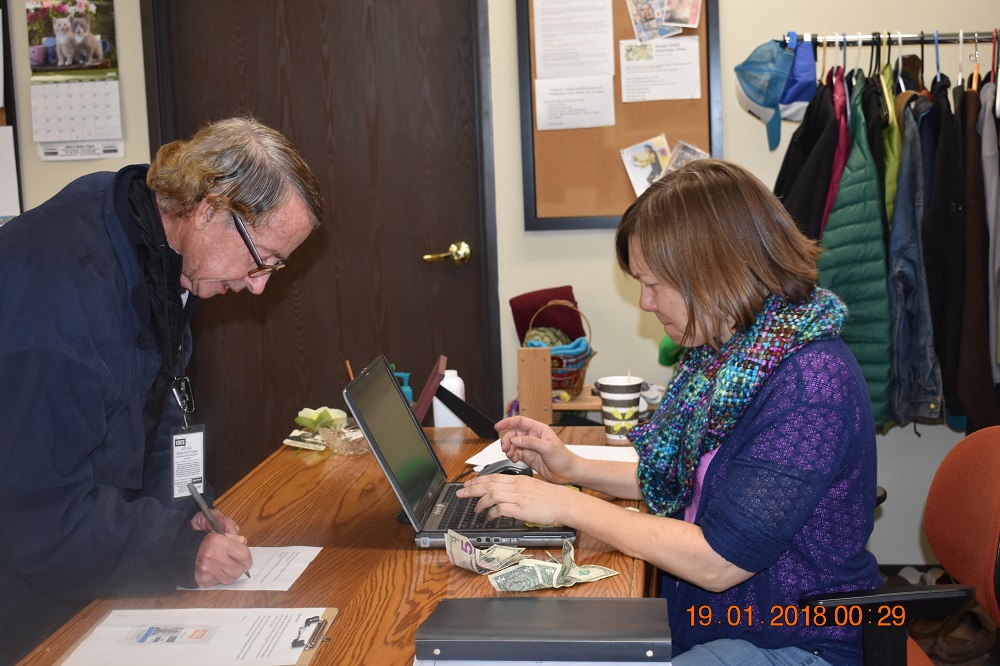
Over the years I’ve had the privilege of buying the VOICE from dozens of vendors and each and every transaction was an experience worth the price I paid — the paper itself was a bonus. But two individuals in particular went out of their way to become my friends, and they were the ones I went back to time after time.
Manuela Shaw was the first. You might remember her as the elfin vendor who graced the mall in front of Republic Plaza for years before she passed away in 2014. Manuela nearly always greeted me by my first name and gave me her beautiful trademark smile when we encountered each other, usually early in the day, often before sunrise. Her inner fierceness and grace beamed out from her eyes right up to the very last time I saw her.
My other vendor buddy is Patrick Balerio. We’re about the same age and we both grew up in Colorado, and we often share our life experiences and love of books. Patrick is one of the most well-read individuals I know, and I always value his knowledge and perspective on what has become a very wide range of subjects. In particular, he has been a great source of insight for me on the subjects of mental health and addiction when some of my friends and family members were dealing with those issues.
Patrick usually has a variety of gear and stuff with him when he sells the VOICE, not the least important being Oscar the Grouch, who peers irritably from a daypack on the steps nearby.
– Kurt Bair, VOICE reader
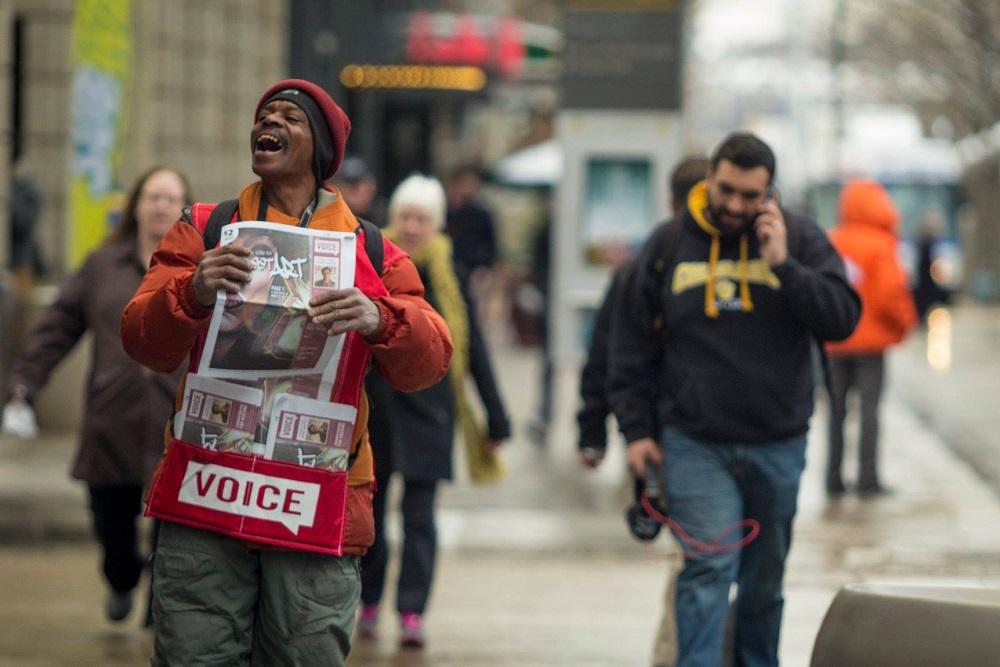
Being a VOICE volunteer brings plenty of rewards. Not only do I get to play a small role in this worthy program, I also hear interesting personal stories from the vendors (Marvin’s description of being trapped in an elevator made me claustrophobic), and engage in lots of fun banter (note to Rea: Sorry, I still say zombies have a greater potential in literature/films than vampires). I’ve learned about the 1991 Father’s Day Bank Massacre from David Gordon and met several tail-wagging dogs (fun fact: Raelene and Meg’s dogs wear cute sweaters). Once, Ieaves dropped on a conversation between three vendors as they compared the stuffed animals they use to attract customers. Tony the Tiger vs. stuffed kitty vs. fluffy bear! The discussion was illuminating. Who knew the drawing power of plush toys?
One of the greatest rewards of being a VOICE volunteer is witnessing the sense of community. The vendors understand that every person’s success is good for the program, and they look out for each other. Not all of them and not all the time, but more often than not. They share tips on vending locations and lend each other spare change. The top vendors hold workshops to teach techniques for gaining more customers.
Veteran vendors passing through the office give quick pep talks to new people there for orientation. When staff needed a photo to promote the VOICE on Colorado Gives Day, Virginia put on funny orange glasses and smiled for the camera. One morning, a vendor described to me his string of bad luck and, after he’d left for the restroom, another vendor who’d overheard everything quietly gave me money to buy the struggling vendor ten papers.
I’m glad to be part of the program, and salute all the hardworking vendors, past and present. You inspire me. Thank you for being kind and patient when I mess up (John Alexander, I’m especially looking at you), and making room for me in your lives.
– Tracy Abell, VOICE office volunteer
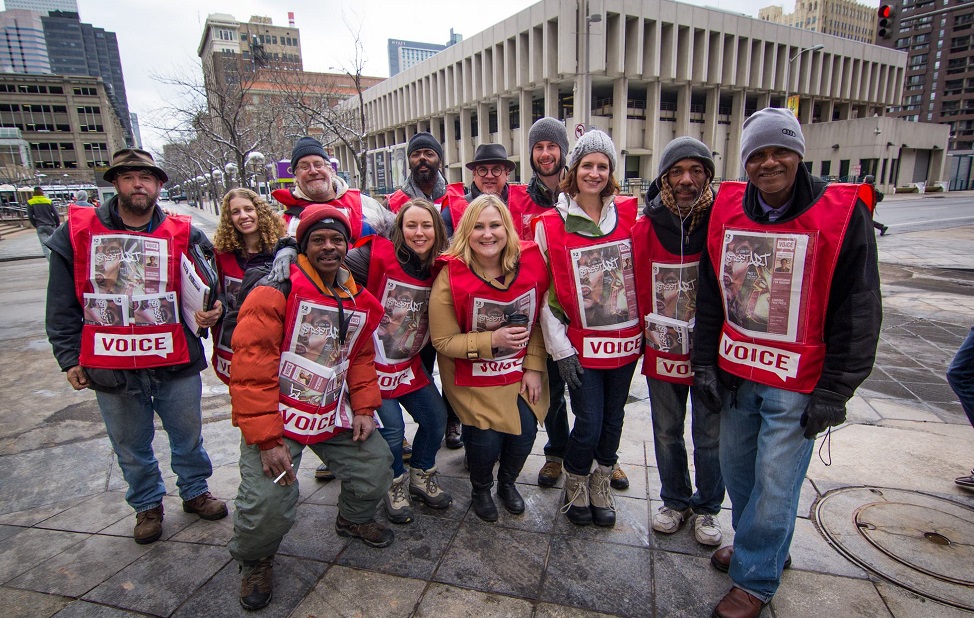
I’m a chronically busy gal. I tend to over commit, which means I spend a lot of time feeling stressed about how to get everything done. There are a lot of weeks that I wake up before my volunteer shift and think, “I don’t really have time to do this, I have projects X, Y, and Z to get done and I haven’t even thought about project A.” But around 12:30 or so, I end my volunteer shift in a great mood, with a clear head, more energy, and a way better attitude. I owe that lift to the VOICE vendors.
The clear head and attitude adjustment come from realizing that I really have very little to be stressed about in the grand scheme of things.
The energy and mood improvement are from the abundance of laughter that happens in Suite 230 between 9:00 and noon. Vendors are some of the most upbeat, positive thinking folks I know. Marvin even was able to joke about getting a black eye; I guess laughter is the best medicine for dealing with the absurd and uncontrollable. There’s a lot of singing that happens too. Especially when Lando and I are in the office at the same time, much to Joseph’s chagrin.
When I start feeling overwhelmed, I remember a story David told about an encounter with a young businesswoman on the 16th Street Mall. She’d brushed by him, ignoring what he’d said even though it was clear she’d heard. When he politely called her on this, she said something about how busy she was and how hard her job is. I don’t remember the specifics, it’s David’s story, not mine. Basically, David encouraged her to realize how lucky she is to have a job that is challenging enough to actually give her something to be stressed about.
I’m not sure what effect that had on her, but I know it has done wonders for me.
– Alison Cox, VOICE office volunteer
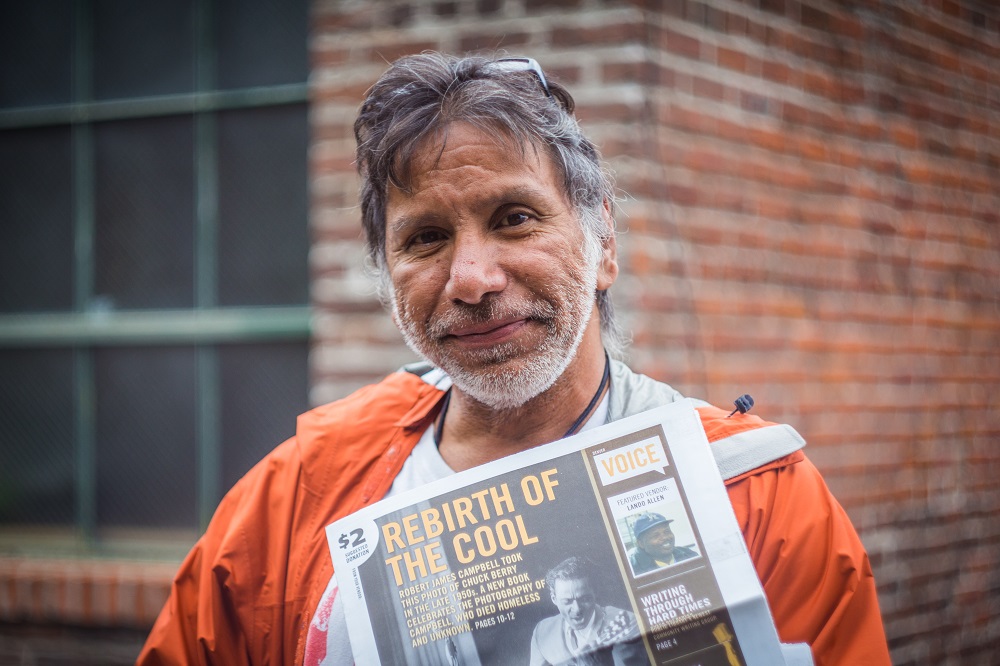
Before starting Hope Tank six years ago, I was a social worker. I have worked with many, many people over the years who were experiencing homelessness. What they have in common is that every single one of those people told me that they often felt invisible, unheard, and irrelevant. They felt this way almost immediately, even though nothing about them as a person had changed. People don’t end up on the streets because of one thing going wrong. It is often an unfair, delicate house of cards that was dealt to them that they manage to keep standing until one of the cards is pulled out. We pat ourselves on the back when we serve a meal at a shelter, or hand out some change at a red light. We feel like we’ve done our part, but we are only addressing an immediate basic need, not the need that all of us have to be truly seen and heard.
Becoming homeless does not mean you stop caring about politics, wanting to be in love, connecting with people, and having big dreams. This is where the VOICE comes in. Vendors start out feeling like just another number added to Denver’s homeless statistics, and leave with a sense of pride, a drive to succeed, and most importantly, a way to connect with people. I have been incredibly lucky to have connected with David Gordon. David acknowledges that his life has taken some hard turns, but he also has strong opinions about our community. For years we have talked about local politics, homelessness, business, gentrification — you name it!
When you stop and talk with vendors like David, you begin to think about all of the other people who are experiencing homelessness who have stories, ideas, and ambitions to share. David reminds me why I am, and always will be an advocate. His hope for his own future, and the hard work that he does, talking to people every day, rain or shine, gives me hope.
– Erika Righter, VOICE reader and owner of local social enterprise Hope Tank
You can read more about what’s going on during #VendorWeek 2018 here.








